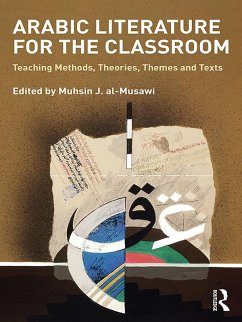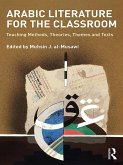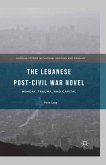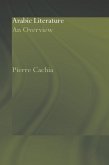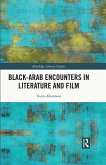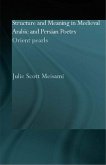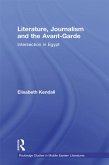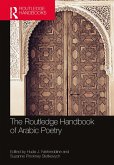The nineteen chapters which make up this book broach theoretical and methodical cultural concerns in teaching literatures from non-American cultures, along with issues of cross-cultural communication, cultural competency and translation. While some chapters bring out the fascinating and ever tantalizing connections between Arabic and the literatures of medieval Europe, others employ specific approaches to teaching particular texts, potential methodologies, themes and a variety of topics that can place Arabic widely in a vast swathe of academic application and learning. Topics that are explored include gender, race, class, trauma, exile, dislocation, love, rape, humor, and cinema, as well as issues that relate to writers and poets, women's writing and the so called nahdah (revival) movement in the 19th Century.
The comparative framework and multi-disciplinary approach means that this book injects new life into the field of Arabic Literature. It will therefore be an essential resource for students, scholars and teachers of Arabic Literature, as well as for anyone with an interest in learning more about Arabic culture.
Dieser Download kann aus rechtlichen Gründen nur mit Rechnungsadresse in A, B, BG, CY, CZ, D, DK, EW, E, FIN, F, GR, HR, H, IRL, I, LT, L, LR, M, NL, PL, P, R, S, SLO, SK ausgeliefert werden.
This critically acute and pedagogically canny collection offers a host of ways to bring Arabic literature more fully into comparative and world literature classrooms, as well as in more specifically Middle Eastern courses. These essays offer new pathways into a wide range of classic and modern texts, in illuminating discussions that will be full of interest for teachers, scholars, and general readers alike. David Damrosch, Ernest Bernbaum Professor and Chair, Department of Comparative Literature, Harvard University
In this fine addition to a growing corpus of such materials, Muhsin al-Musawi and his colleagues have brought to bear on the teaching of Arabic literature a wide-ranging, high quality and apposite set of texts, insights, and best practices, designed to guide both novices and seasoned experts alike. Shawkat M. Toorawa, Professor of Arabic Literature, Yale University

